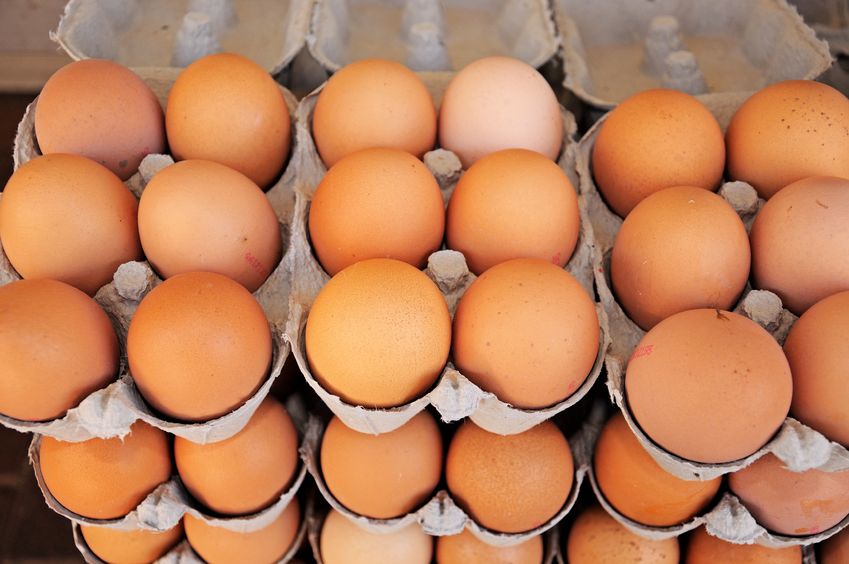New dioxin egg scare hits Belgium

Another dioxin eggs scare has emerged on the European continent, according to reports in the Belgian press.
Authorities in Belgium have issued a recall for eggs sold under the EKE brand after food safety checks revealed excess levels of dioxin in the eggs.
There have been a number of dioxin scares in Europe since the first crisis hit Belgium in 1999, when dioxin-contaminated feed was found to have been given to chickens, pigs and other farm animals.
The European Union banned sales of Belgian poultry, eggs, fatty beef, pork, butter, and all by-product foods at the time.
Other scares have arisen periodically since then in Europe, and now dioxin contamination in Belgium has again arisen.
The contamination is listed on the Rapid Alert System for Food and Feed (RASFF) of the European Union, where it is said to affect both eggs and egg products.
The alert was raised by the Belgian food safety agency, AFSCA, which was alerted to the problem by food manufacturer EKE.
The eggs recalled by the Belgian authorities were sold by the supermarket chains Delhaize, Carrefour, Cora, Match and Intermarché, as well as a number of wholesale grocers, according to reports in Belgium.
The recalled eggs at Carrefour, Intermarché and Delhaize involved six and 12-egg packs. At Cora the eggs recalled were the store’s six and 10-egg packs.
In April 2012 high levels of dioxin were found in eggs on five German farms. The contamination took place despite the introduction of strict new rules following a major dioxin scare in 2011. Nearly 5,000 German farms were temporarily closed during the 2011 dioxin contamination.
There was a European Union-wide alert when contaminated eggs produced in Germany were traced to other countries.
In the United Kingdom supermarkets removed suspect products from their shelves after contaminated eggs found their way into the cakes and quiches of two British food manufacturers.
The spread of dioxin in 2011 was traced to animal feed. Fats not intended for food use were used in animal feed for pigs and poultry.
German authorities subsequently made revisions to the country's food safety laws and placed restrictions on animal feed ingredients. The European Union also introduced new regulations to prevent a similar outbreak in future.
During the 2011 outbreak, EU officials initially believed that the incident had been confined to Germany, but subsequently confirmed that contaminated egg had found its way into exports.
The contaminated egg arrived in the United Kingdom via Holland. Eggs from some of the farms affected by the contaminated feed had been exported to Holland for processing.
Pasteurised egg product from Holland was then shipped to the UK where it went to food manufacturing plants.
The Food Standards Agency subsequently revealed that the eggs from Holland had gone to two UK manufacturers.
The FSA said the manufacturers used the pasteurised liquid egg to produce a range of short shelf life cakes and quiches, which were supplied to the major UK supermarkets.
The suspect cakes and quiches were quickly removed from supermarket shelves once the alarm was raised.
The FSA said the products on sale in the UK would have presented a reduced risk to consumers because the contaminated egg from Germany had been mixed with other non-contaminated egg once it had arrived in Holland. The mixing of the eggs would have diluted the levels of dioxins, said the FSA.
However, the British Egg Industry Council said it was another example – following a number of previous scares involving imported eggs - of why food manufacturers, caterers and retailers should use British Lion eggs and egg products.
That is the way, it says, to ensure the highest standards of food safety.
“While there have been a number of instances of dioxin contamination in eggs and egg products across the EU over the past decade, the requirements of the Lion Code have meant that there have been no such cases in British Lion eggs or egg products,” said BEIC chairman Andrew Parker.
“We would urge retailers and manufacturers to specify the British Lion standard to ensure they are receiving eggs and egg products produced to the highest food safety standards.”
The BEIC said the code of practice for British Lion eggs incorporated wide-reaching controls throughout the production chain and stipulated that feed was produced to the Universal Feed Assurance Scheme standard, which ensured that all raw materials were sourced from approved suppliers and were regularly checked, minimising the risk of contamination.
Following the latest scare in Belgium, British Lion egg processors again called on food businesses to buy British.
It said: “A recall has been issued for organic eggs produced by the brand EKE and sold in several supermarkets in Belgium, after food safety authorities detected excess of levels of dioxins in the eggs. It is not clear if the contaminated batch of eggs has also been used for processing.
“There have been a number of non-UK egg food safety scares in the last few years, from fipronil, to dioxins and salmonella.”
Andrew Joret, BEIC chairman, said: “This incident is just the latest in a long line of food safety issues related to non-UK eggs. While there is no evidence that the contaminated egg has been exported, UK food businesses should protect themselves by putting their trust in British Lion eggs and egg products, which are produced to the highest standards of food safety.
“They can also reassure their customers by using the British Lion mark on pack.”








